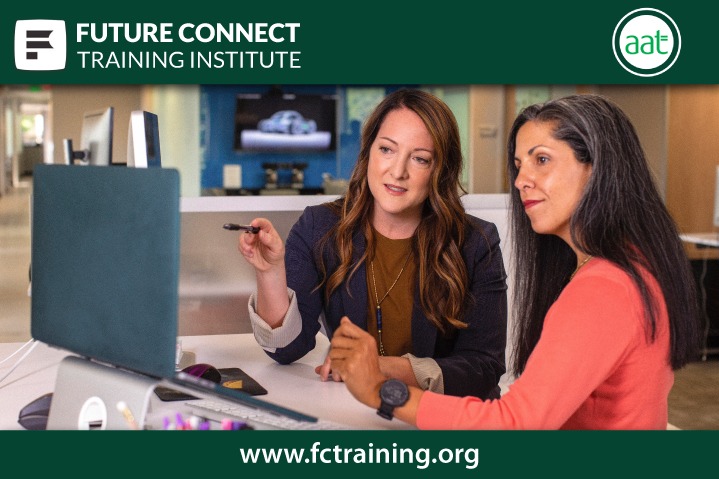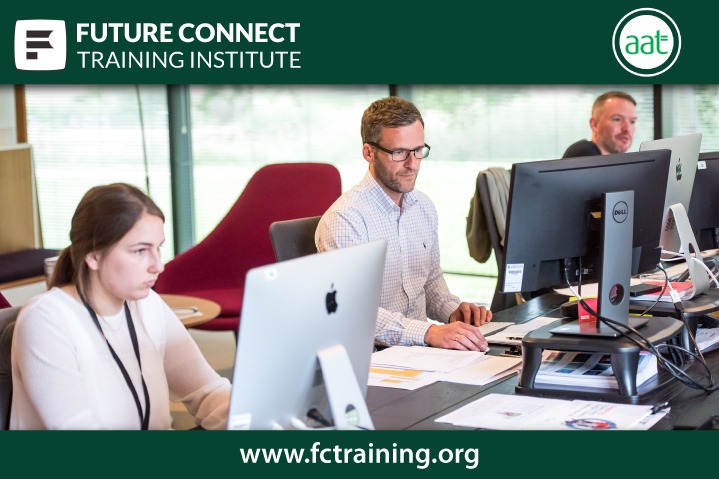AAT Level 2 Certificate in Bookkeeping
- Learning Hours: 115
- Duration: Up to 4 Months
- Exams: 2
This introductory qualification equips you with essential practical skills and foundational techniques to confidently navigate and thrive in diverse business environments. Gain valuable insights and broaden your understanding of key business concepts to set your career path on the right track.
Ready to build your business skills? Enrol now and take your first step towards success!
AAT Level 2 Certificate in Bookkeeping (Q2022)
Boost your bookkeeping expertise and embark on a rewarding financial career with Future Connect Training’s industry-recognized AAT Level 2 Certificate in Bookkeeping. Our comprehensive and interactive course offers practical insights into both manual and digital bookkeeping methods, ensuring you're ready to excel in any finance role.
Comprehensive Course Overview
Our AAT Level 2 Certificate in Bookkeeping is meticulously structured to deliver foundational and advanced bookkeeping knowledge crucial for a successful career in finance. Ideal for beginners and professionals seeking formal recognition, this qualification thoroughly prepares you for real-world bookkeeping scenarios.
Qualification Level: Level 2 (Ofqual Regulated: 603/6343/5)
Course Duration: 115 guided learning hours (approximately 155 total qualification hours)
Assessments: Two practical computer-based exams
Entry Requirements: Open to all learners; basic English and Maths proficiency recommended
Is This Course Right for You?
This dynamic qualification suits:
Individuals eager to begin a career in bookkeeping and finance
Existing finance professionals looking to certify their skills
Professionals returning to work after a career break
Entrepreneurs managing business finances
Anyone aiming to transition into a career in bookkeeping and accounting
Detailed Course Modules
Dive deep into essential bookkeeping practices with our two comprehensive units:
Establishing Bookkeeping Systems: Learn manual and digital systems, creating and managing effective financial documentation such as invoices and credit notes
Processing Financial Transactions: Master recording sales, purchases, discounts, VAT transactions, and maintaining accurate daybooks and ledgers.
Cash Management: Expertly manage and reconcile cash and petty cash books, ensuring accuracy in financial reporting.
Control Accounts Mastery: Gain skills in managing VAT, receivables, and payables control accounts to ensure accuracy and compliance.
Bank Reconciliations: Learn to reconcile bank statements with cash book entries to identify and resolve discrepancies effectively.
Error Identification and Correction: Handle journals, process payroll transactions, and understand how to correct bookkeeping errors using digital and manual systems.
Trial Balance Preparation: Confidently produce and balance trial balances for accurate financial records.
Practical and Interactive Learning
At Future Connect Training, we believe practical experience is key to mastering bookkeeping. Our course features:
Real-World Case Studies: Engage with realistic scenarios to enhance your understanding and practical bookkeeping skills.
Interactive Learning Platform: Access comprehensive resources 24/7, including video tutorials, quizzes, and practice assessments.
Personalised Tutor Support: Enjoy dedicated one-on-one guidance from experienced bookkeeping professionals via phone, email, or video conferencing.

Please fill the following form so our team can contact you
Career and Progression Opportunities
With this highly valued qualification, you can confidently pursue various bookkeeping and finance roles:
Bookkeeping Assistant
Accounts Clerk
Finance Assistant
Accounts Administrator
Trainee Bookkeeper
Further studies can lead to advanced roles such as Senior Bookkeeper, Accounting Technician, or managerial finance positions.
Clear Pathways for Career Progression
This qualification sets a solid foundation for progression to:
AAT Level 3 Certificate in Bookkeeping
AAT Level 3 Diploma in Accounting
Our tutors offer personalized advice to ensure your educational and career aspirations align perfectly.
Transparent Course Fees and Funding
Course Fee: Competitive, transparent pricing with flexible payment plans available
AAT Registration Fee: Approximately £68
Exam Fee: Approximately £110 per assessment
Why Choose Future Connect Training?
Hands-On Experience: Practical training with real-world scenarios and industry-standard software
Experienced Tutors: Qualified professionals delivering personalized, supportive guidance
Career-Focused Support: Job placement assistance, CV guidance, and interview preparation
Flexible and Accessible: Fully online, interactive course designed for your convenience
What Our Students Say
“Future Connect provided real-world scenarios and exceptional tutor support. I now feel fully prepared to advance my bookkeeping career.” – Maria S.
“The course structure and tutor engagement exceeded my expectations, making complex concepts easy to understand.” – James T.
Insights Directly from the Qualification Specification
Ethical Excellence: Emphasis on maintaining integrity, confidentiality, and adhering to professional ethical standards
Digital Proficiency: Gain invaluable skills in popular bookkeeping software used across industries
Employer Endorsement: Acquire skills highly sought-after by employers, boosting employability and career advancement
Frequently Asked Questions (FAQs)
No formal qualifications are needed, although basic proficiency in English and Maths is advisable.
Most learners complete the course within 115 guided learning hours, depending on their pace.
You'll undertake two practical, computer-based exams under controlled conditions.
Yes, unlimited resits are allowed to ensure you achieve the best possible outcome.
Absolutely! Our course is 100% online, accessible anytime and anywhere.
Roles such as Bookkeeping Assistant, Accounts Clerk, and Finance Administrator will be within your reach.
Yes, completing this qualification opens pathways to Level 3 bookkeeping and accounting courses.
AAT registration fees (approximately £44) and exam fees (approximately £38 per exam) are applicable.
You'll get hands-on experience with widely used, industry-standard bookkeeping software, enhancing your digital skillset.
Results are typically available within 24 hours via MyAAT.
Recognition of prior learning (RPL) and exemptions are available under certain conditions.
We offer job placement support, personalized career advice, CV enhancement, and interview coaching.
Ready to Transform Your Career?
Join Future Connect Training’s AAT Level 2 Certificate in Bookkeeping today. Equip yourself with the practical skills, expert support, and qualifications needed to succeed in bookkeeping and finance. Start your journey now!
Our Achievements: Recognised Excellence in AAT
Future Connect Training and Recruitment has been ....
We Are Delighted To Announce That Future Connect Training And Recruitment Has Won....
Trusted By
.png)
.png)



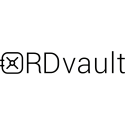





.png)

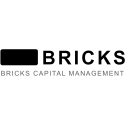










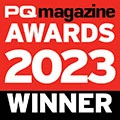








.webp)

